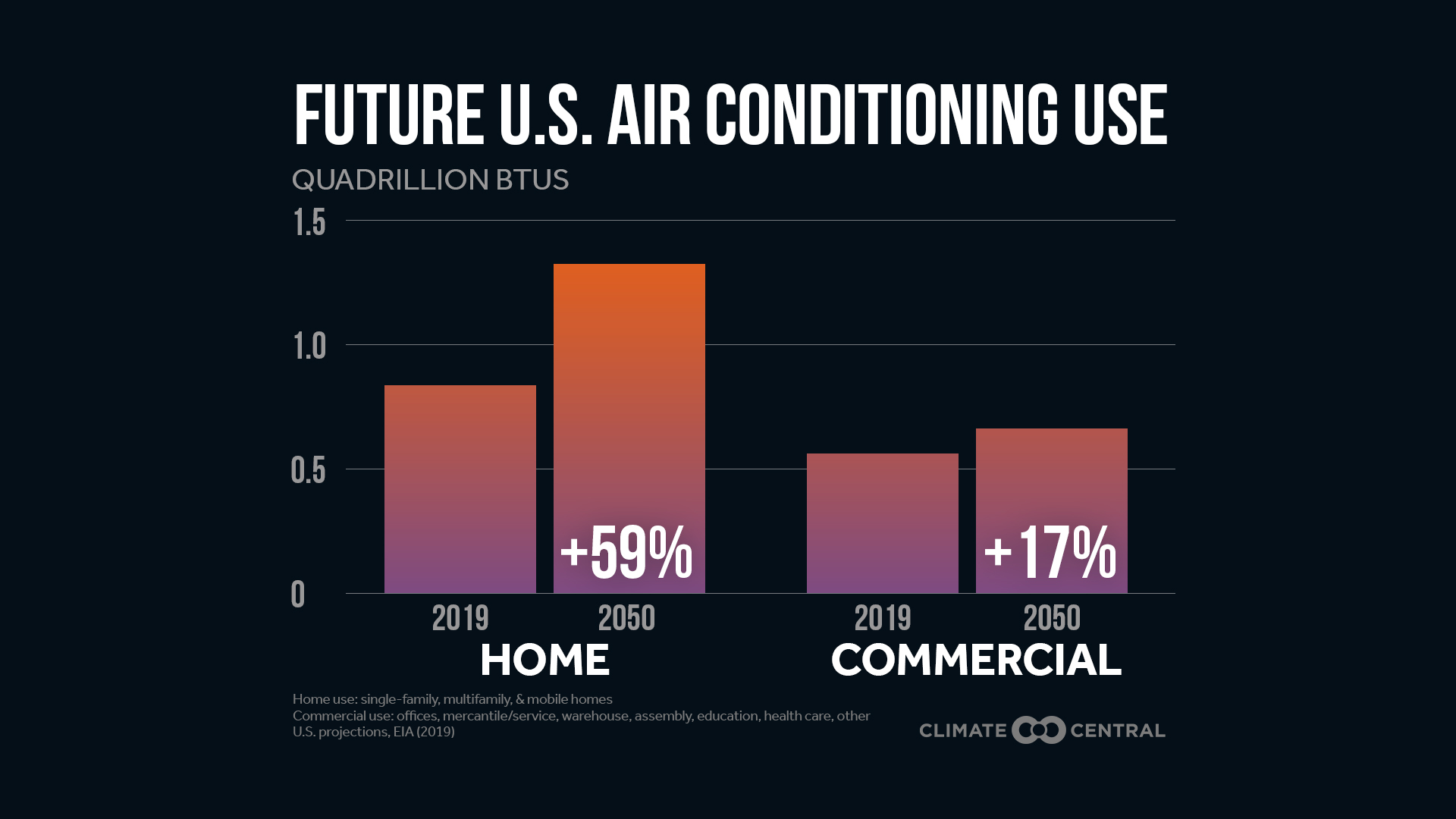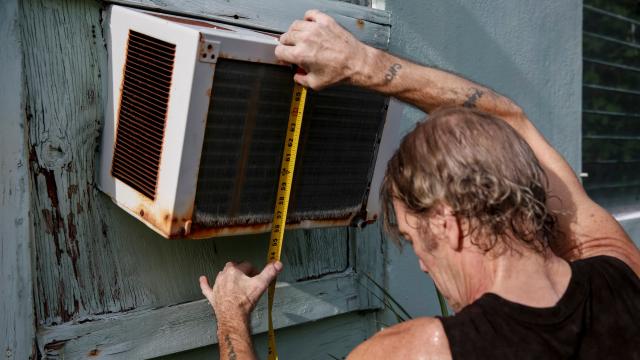It’s no secret that it’s getting hotter and hotter outside. On Sunday, Death Valley 54.4 degrees Celsius, which is an extreme example of a notable trend. The rising heat is also driving up the demand for air conditioning, and the surge will only become more dramatic as the climate crisis persists. A new analysis from Climate Central shows that the U.S. will see a shocking 59 per cent increase in home air conditioning use over the next 30 years.
The new report, based on an analysis of 242 U.S. cities, shows that climbing temperatures are sharply increasing instances of cooling-degree days, a measure of when temperatures are high enough that many people turn to using their air conditioners.
The metric is based on the temperature difference between an average daily temperature in a given location and 18.3 degrees Celsius, which is considered a standard comfortable temperature by meteorologists. For instance, a day in a location with an average temperature of 32.2 degrees Celsius is equivalent to 25 cooling-degree days. More cooling-degree days generally means higher levels of energy use for keeping buildings and homes comfortable.
Climate Central looked at air conditioning use and cooling-degree days data from 1970 to 2019 and found that 96 per cent of American cities are experiencing more cooling-degree days since the 1970s. Though temperate and cooler cities are seeing these surges, the most dramatic increases are happening in cities that are already hot. McAllen, Texas; Las Vegas, Nevada; and Phoenix, Arizona saw the biggest increases with each dealing with more than 1,000 cooling-degree days in 2019 compared to 1970.
Particularly oppressive heat waves like the one baking California and the Southwest now are, in part, driving the rise and creating potentially deadly conditions. The National Weather Service fears the extreme heat currently blanketing California will rival that of 2006, which was connected to 130 deaths.

To stay safe and cool, Americans will become increasingly reliant on air conditioning. The report estimate that home air conditioning use could rise 59 per cent by mid-century, but that will come with steep costs.
Ten per cent of Americans do not have have home air conditioning of any kind, and the U.S. Department of Energy estimates that some 50 million people face severe hardship paying their utility bills. Poorer households spend a disproportionately high amount on their utilities bills as well. Low income households spend an average of 7.2 per cent of their household income compared to just 2.3 per cent for higher income households, the American Council for an Energy-Efficient Economy estimates.
At the same time as Americans are struggling to pay for air conditioning amid the climate crisis, air conditioning itself is contributing to the climate crisis in a major way, as much of it is powered by hydrofluorocarbons, chemicals that warm the planet up to 11,700 times more than carbon dioxide. Increasing the use air conditioning without tackling emissions make the climate crisis even worse, warming the planet even more and creating a vicious feedback loop that makes people even more reliant on air conditioning.
The report illustrates the need for a countrywide adaptation strategy to deal with increasing temperatures that includes expanding access to cooling technology and cleaning up planet-heating emissions. After all, heat is already the most deadly form of extreme weather. We have the technology and money to clean up our air conditioning and to make it more accessible and affordable. Now our civic leaders just have to do it.
